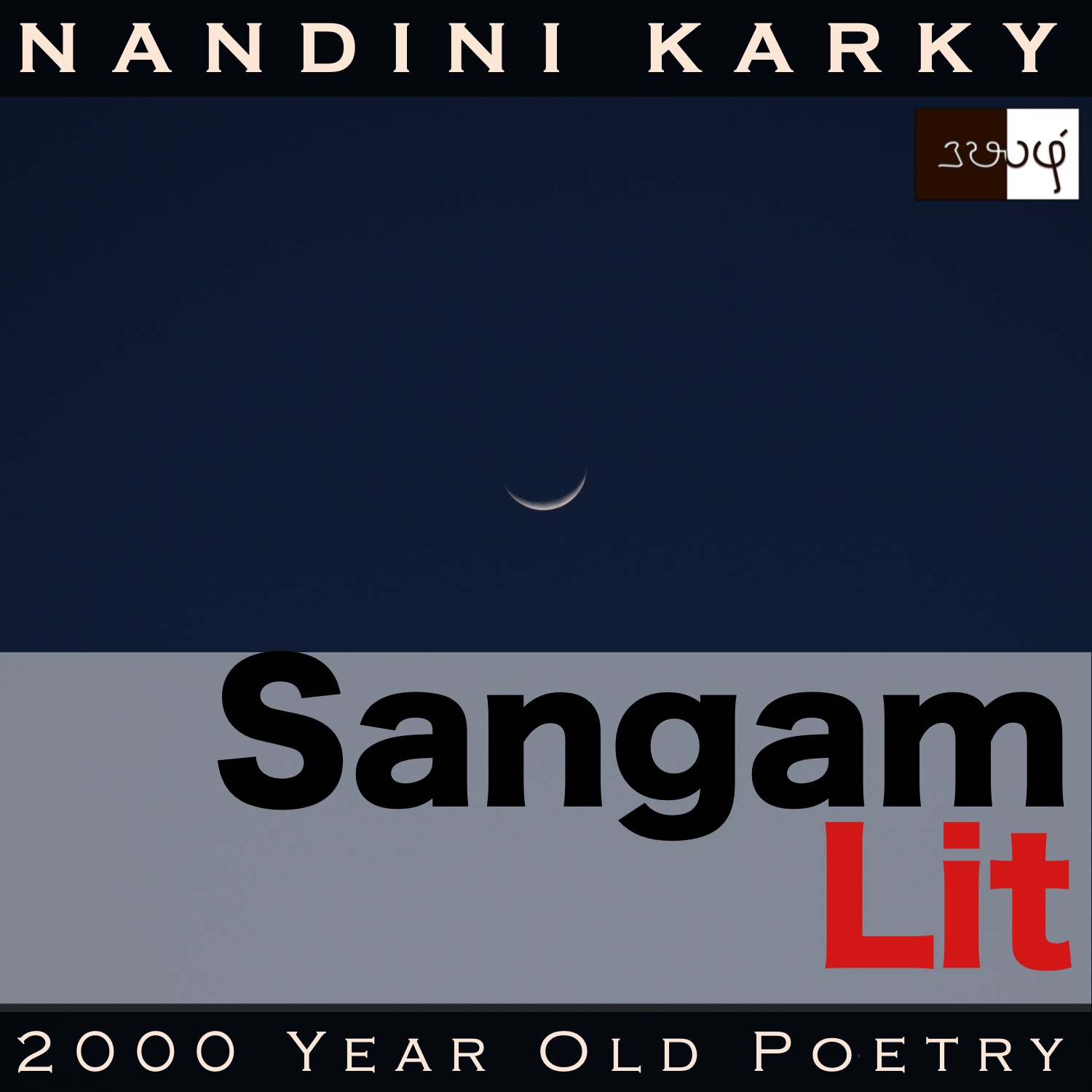Podcast: Play in new window | Download
Subscribe: Apple Podcasts | Spotify | Amazon Music | Android | iHeartRadio | TuneIn | RSS | More

In this episode, we perceive two precise similes to portray a person’s state of mind, as depicted in Sangam Literary work, Kurunthogai 178, penned by Nedumpalliyathaiyaar. Set in the agricultural regions of ‘Marutham’, the verse speaks in the voice of the confidante to the man, when visiting the man and lady at their home after their wedding.
அயிரை பரந்த அம் தண் பழனத்து
ஏந்து எழில் மலர தூம்புடைத் திரள்கால்
ஆம்பல் குறுநர் நீர் வேட்டாங்கு, இவள்
இடை முலைக் கிடந்தும், நடுங்கல் ஆனீர்;
தொழுது காண் பிறையின் தோன்றி, யாம் நுமக்கு
அரியம் ஆகிய காலைப்
பெரிய நோன்றனிர்; நோகோ யானே.
A verse that mulls over ‘now and then’. The opening line ‘அயிரை பரந்த அம் தண் பழனம்’ talks about ‘a charming little field, filled with moisture, in which loach fish are swimming about’ and situates the verse in the water-rich paddy fields of these farmlands. When I read the phrase ‘ஆம்பல் குறுநர் நீர் வேட்டாங்கு’ meaning ‘those who wish to pluck white lilies desiring water’, it rang a bell within. On searching a little, I found that I had come across a similar phrase ‘குவளை குறுநர் நீர் வேட்டாங்கு’ in Natrinai 332, where the only difference is those who are desiring water are out plucking blue lilies instead of white. Let’s delve into this simile shortly. Next, from down below, we lift our heads to glimpse at ‘தொழுது காண் பிறை’ meaning ‘the crescent moon that is prayed to’, indicating the practice of moon-worship in Sangam times. The ‘phrase ‘அரியம் ஆகிய காலை’ meaning ‘the times when it was rare’ looks back at some precious past event. Ending with the words ‘நோகோ யானே’ meaning ‘I suffer greatly’, the verse beckons us to listen with empathy.
Waterlilies in paddy fields and a god-like crescent moon, hold within some intricate facets of the heart. The context reveals that the man and lady were recently married and the confidante happened to visit their place after their wedding. One day, the confidante says to the man, “In that picturesque, moist field, filled with ‘ayirai’ fish, akin to those, who seek to pluck the most beautiful, fully bloomed white lilies with thick, tube-like stems, thirsting for water, even though you lay between her bosoms, you shiver with unquenchable love. Akin to the worshipped crescent moon, at a time when she appeared so rarely to you, you have been excessively patient indeed. I suffer when I think of it now!” With these words, the confidante expresses her understanding of the man’s devotion to the lady, by illustrating it with images from then and now.
Two scenes stand out in this verse! One is a lush field, in which loaches are swimming about and white waterlilies are soaring above the water level, standing tall on their thick and sturdy stems, fully blossomed and sending an invitation to the world around with their opened out smiles. Accepting their invitation, flower pluckers step into this water-filled field and as they are intent upon their jobs under the hot sun, even though water surrounds them all around, they feel thirst strike at their throats. This is the first scene the confidante narrates and places it in parallel to how the man, although in a close embrace with the lady, seems to be pining even when apart from her for a single moment. Such is the man’s passion for the lady, the confidante implies.
From the scene in that moist field, the confidante moves to a second one, wherein we see people waiting anxiously to glimpse the slender crescent moon in the skies that seems to be playing tricks with them by hiding behind clouds and not appearing to their heart’s content. That scene, the confidante places in parallel to how rare the lady appeared to the man when they were in their courtship period. At that time, the man only had stolen slivers of time to spend in the lady’s company. Saying this, the confidante declares that the man must have been pained by that frequent separation and concludes that thinking back of how tolerant the man was then, her heart was hurting now!
A modern way of conveying the thought in this verse is for the confidante to say to the man, ‘Even when you can see her every single moment, you seem not to be satisfied. Wonder how you bore with it, when you saw her once in a blue moon then!’ This seems to me to throw light on the very human nature to look back at a moment of sadness when in joy now or vice versa. We seem to yearn to compare one moment with another so as to fully perceive its qualities. And perhaps, this reflection is a way to multiply our joys and divide our sorrows, as effectively illustrated by the succinct similes of this ancient song!




Share your thoughts...